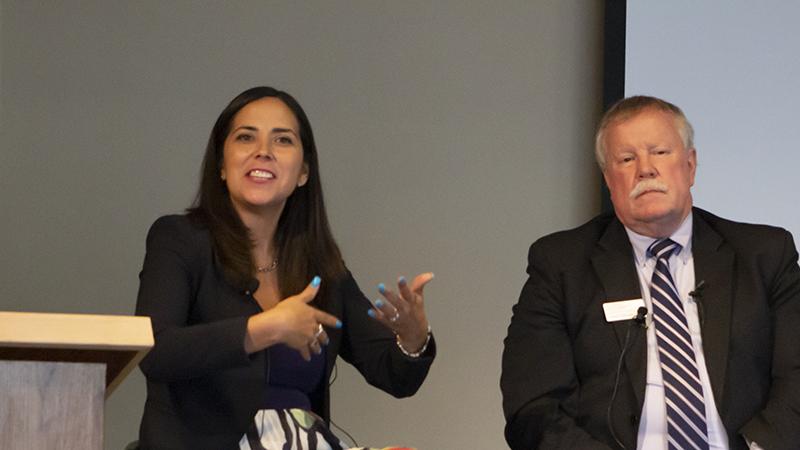Who Belongs Here?
Leer en español
Photo by Rachel Mondragon
By Kristin Jones
Sometimes science takes a while to catch up with the basics of human experience.
Anyone who has been a child knows how important it is to belong. To be accepted and understood is no less important as we grow older. Many of the civil rights struggles of the past century—including the ones playing out now—have largely been over the question of who belongs in America.
“‘Belonging’ is a word that has found itself at the center of the work that I’ve done for close to 20 years,” said Andrea Cristina Mercado, a community organizer who has worked alongside immigrants and domestic workers. “But I really didn’t have any idea that it was such a central focus in public health.”
A slew of studies within the past decade have tied a sense of belonging to better health and learning.
For Mercado, the latest speaker in a series of Trust-sponsored presentations in Colorado aimed at illuminating health equity issues, the importance of belonging came through most clearly in the stories of people she has encountered in her work.
Take Norma, a woman she met at meetings organized by the San Francisco-based immigration rights group Mujeres Unidas y Activas. Norma was arrested after calling the police to report domestic violence. She didn’t speak much English, and when the police came, they believed her husband’s explanation that it was a mutual spat. Police arrested both of them. Norma, who was undocumented, was turned over to immigration authorities, who started deportation proceedings.
“We knew that if Norma was deported, not only would it separate her from her son Brian indefinitely, but it would send a chilling message to women in situations of domestic violence or survivors of crime,” said Mercado. “That if anyone in their home was undocumented, that they better not call the police.”
When Norma was released with an ankle monitor, she became a spokesperson for policy change, said Mercado. Her work was critical to passing a California law that limited police collaboration with immigration officers:
There are women like Norma all across this country who are being trapped in deportation proceedings, who are afraid to call the police. Because these policies are being maligned from the White House on down, contorting the word ‘sanctuary’ into a dirty word. A community’s ability to call the police, to pick your children up from school without fear, to go to work and make an honest living, should be held sacred.
The debate we are having about immigration is not at its heart about policies, said Mercado. We’re not debating how many years the process should take, the best provisions of services, the style of education or forms of housing.
“No, we’re debating who belongs in this country,” said Mercado. “Fundamentally, who is this country for? And that’s a question as old as the Langston Hughes poem that says, ‘America never was America to me.’”
Is America a white, Christian nation? Or is it a country where all of us belong?
“It’s up to us to find ways to have conversations that bridge difference and center our humanity,” said Mercado. “Immigrant and native-born, Black and white, rural and urban, gay or straight. … When we bring people together across difference, we forge a new majority of inclusion and understanding. And we might not be able to bring everyone along, but for those of use who believe in the promise of democracy, in the vision of liberty and justice for all: This is our shared purpose.”
Mercado’s presentation is worth watching in its entirety.